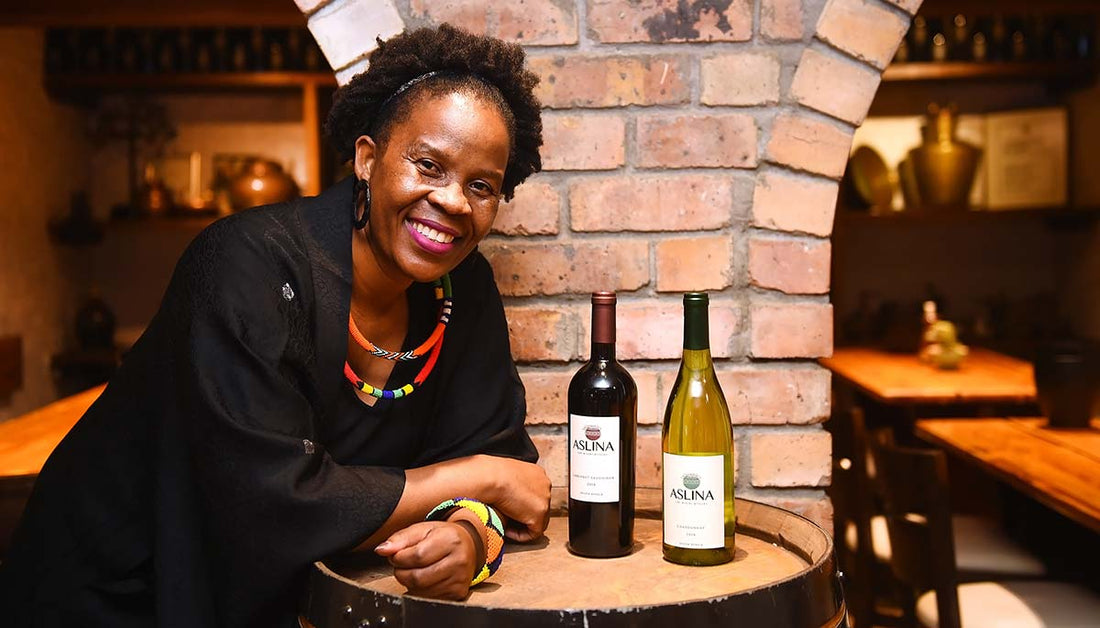
Meet Ntsiki Biyela of Aslina Wines
Share

Ntsiki Biyela’s journey to becoming South Africa’s first Black female winemaker is nothing short of extraordinary. Growing up in the rural village of Mahlabathini, KwaZulu-Natal, Ntsiki had little exposure to wine or the winemaking process. In fact, she didn’t taste wine until she was in her twenties. Despite this unconventional start, Ntsiki's story has since become one of inspiration and empowerment, both in the wine industry and beyond.
Her path to winemaking began when she was awarded a scholarship to study viticulture and oenology at Stellenbosch University. The transition was not without its challenges—Ntsiki initially struggled with language barriers and the cultural shift of moving from a rural area to a university dominated by Afrikaans-speaking students. However, her perseverance and talent quickly set her apart. After graduating, Ntsiki became the head winemaker at Stellekaya Wines, where she honed her craft and gained international recognition.

In 2016, Ntsiki launched her own wine label, Aslina Wines, named after her beloved late grandmother, Aslina, who raised her. Aslina Wines is more than just a brand—it’s a tribute to Ntsiki’s African heritage and the strong women who shaped her life. The wines themselves are a reflection of elegance, complexity, and the essence of the South African terroir. Aslina Wines has been widely celebrated for its high quality, and Ntsiki's reputation as a leading winemaker continues to grow, earning accolades on the international stage.
But Ntsiki’s impact extends far beyond crafting exceptional wines. She has become a vocal advocate for diversity and inclusion in an industry that has historically been dominated by white men. Her own experience navigating the challenges of race, gender, and class in winemaking has driven her to create pathways for others. Through her work, Ntsiki has empowered aspiring winemakers from marginalized communities and is dedicated to reshaping the industry by making it more accessible.

Ntsiki’s vision for the future of wine is one of openness, representation, and cultural exchange. She mentors young winemakers, participates in initiatives that promote diversity, and speaks openly about the need for systemic change in the wine industry.
For Ntsiki, wine is not just about the bottle—it’s about the people behind it, their stories, and their ability to contribute to the global conversation.
Today, Aslina Wines stands as a symbol of resilience, heritage, and inclusivity. Ntsiki Biyela’s remarkable journey is proof that with determination and vision, it’s possible to change not only an industry but also the narrative around who belongs in it. As she continues to lead by example, Ntsiki is creating space for a new generation of winemakers to thrive—one where diversity isn’t an exception but the standard.

